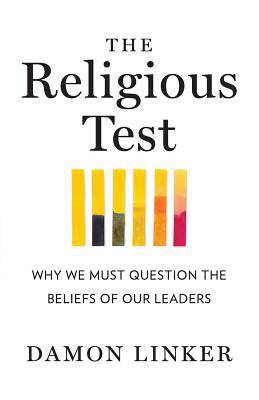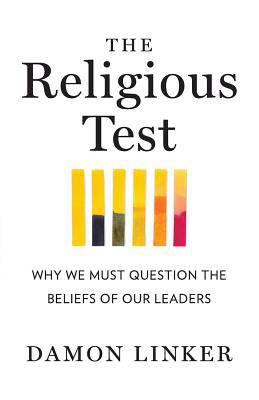
Bedankt voor het vertrouwen het afgelopen jaar! Om jou te bedanken bieden we GRATIS verzending (in België) aan op alles gedurende de hele maand januari.
- Afhalen na 1 uur in een winkel met voorraad
- In januari gratis thuislevering in België
- Ruim aanbod met 7 miljoen producten
Bedankt voor het vertrouwen het afgelopen jaar! Om jou te bedanken bieden we GRATIS verzending (in België) aan op alles gedurende de hele maand januari.
- Afhalen na 1 uur in een winkel met voorraad
- In januari gratis thuislevering in België
- Ruim aanbod met 7 miljoen producten
Zoeken
€ 32,45
+ 64 punten
Omschrijving
The Constitution states that "no religious test" may keep a candidate from aspiring to political office. Yet, since John F. Kennedy used the phrase to deflect concerns about his Catholicism, the public has largely avoided probing candidates' religious beliefs. Is it true, however, that a candidate's religious convictions should be off-limits to public scrutiny?
Damon Linker doesn't think so, and in this book he outlines the various elements of religious belief--including radical atheism--that are simply incompatible with high office, and sometimes even active citizenship, in a democracy. In six forceful chapters he enlightens us to the complicated interrelations between churches and states, consistently applying a political litmus test to a range of theological views. Along the way, he clearly explains, among other topics, why the government in a religiously tolerant society must not promote a uniform, absolute code of ethics and behavior; why the conviction that America is worthy of divine attention is dangerous; and why the liberal position on the political deregulation of sex is our nation's only hope for conciliation.
In this provocative, hard-hitting manifesto, Linker exhorts both believers and atheists to behave better in the public sphere, and he offers a carefully charted road map for doing so.
Damon Linker doesn't think so, and in this book he outlines the various elements of religious belief--including radical atheism--that are simply incompatible with high office, and sometimes even active citizenship, in a democracy. In six forceful chapters he enlightens us to the complicated interrelations between churches and states, consistently applying a political litmus test to a range of theological views. Along the way, he clearly explains, among other topics, why the government in a religiously tolerant society must not promote a uniform, absolute code of ethics and behavior; why the conviction that America is worthy of divine attention is dangerous; and why the liberal position on the political deregulation of sex is our nation's only hope for conciliation.
In this provocative, hard-hitting manifesto, Linker exhorts both believers and atheists to behave better in the public sphere, and he offers a carefully charted road map for doing so.
Specificaties
Betrokkenen
- Auteur(s):
- Uitgeverij:
Inhoud
- Aantal bladzijden:
- 252
- Taal:
- Engels
Eigenschappen
- Productcode (EAN):
- 9780393349696
- Verschijningsdatum:
- 1/09/2010
- Uitvoering:
- Paperback
- Formaat:
- Trade paperback (VS)
- Afmetingen:
- 140 mm x 216 mm
- Gewicht:
- 322 g

Alleen bij Standaard Boekhandel
+ 64 punten op je klantenkaart van Standaard Boekhandel
Beoordelingen
We publiceren alleen reviews die voldoen aan de voorwaarden voor reviews. Bekijk onze voorwaarden voor reviews.









